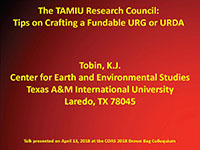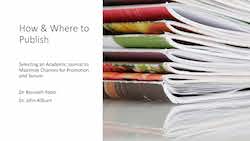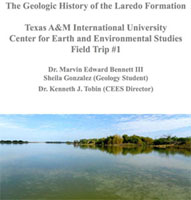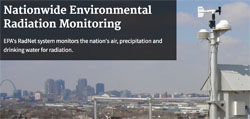Resources
Poster Printing
CEES is happy to support the printing of posters across the TAMIU campus supporting research endeavors. We have printed over 300 since 2010. However, there are a few basic rules that you need to follow to guarantee service.
- All requests need to be initiated through this link. Students who show up at CEES (LVB 346) requesting service without completing the form will be refused. Students must indicate a faculty sponsor on this. Dr. Tobin will confirm with the sponsor that this request is for a research conference. Faculty members are always welcome to print their own work but also must complete the online form to gain approval. Approval is required at least one week before when you will need the poster to allow CEES to plan its activities accordingly.
- CEES prints out posters (36 X 48”) for only national, international, and selected local research conferences. CEES does not print posters for class projects or any other university functions such as program marketing. For the LVB and Pathways conferences special instructions will be provided by Dr. Tobin to those who have students that have been designated as presenting a research project.
- Generally, posters are printed on regular plain paper. We can print posters on glossy paper for national and international conferences if requested.
- Supported formats include PowerPoint, PDF, Photoshop, TIFF, or JPEG format (144 to 288 dpi). Maximum poster size is 36" x 48".
- Please include in your acknowledgements the following statement. “We thank the Center for Earth and Environmental Studies at TAMIU for printing this poster.”


How and Where to Publish

Laredo Fieldtrip Guidebook
(1.2 Mb, pdf)
Professional Services
The Center of Earth and Environmental Studies (CEES) stands ready to assist in research and education within the earth and environmental studies. Particular areas of expertise include:
- Hydrological Modeling
- Remote Sensing and Geographic Information Systems (Map Making)
- Meteorological Data Access and Analysis
- Earth Material Evaluation (Rocks, Minerals and Fossils)
If we cannot directly answer your question we can always identify another expert that we can refer you to who can address your concerns. Contact Dr. Tobin (ktobin@tamiu.edu) for more information.
